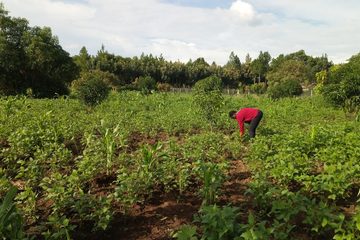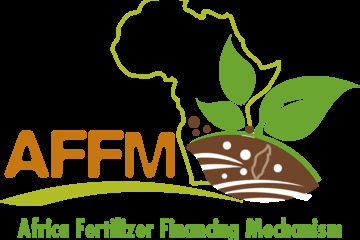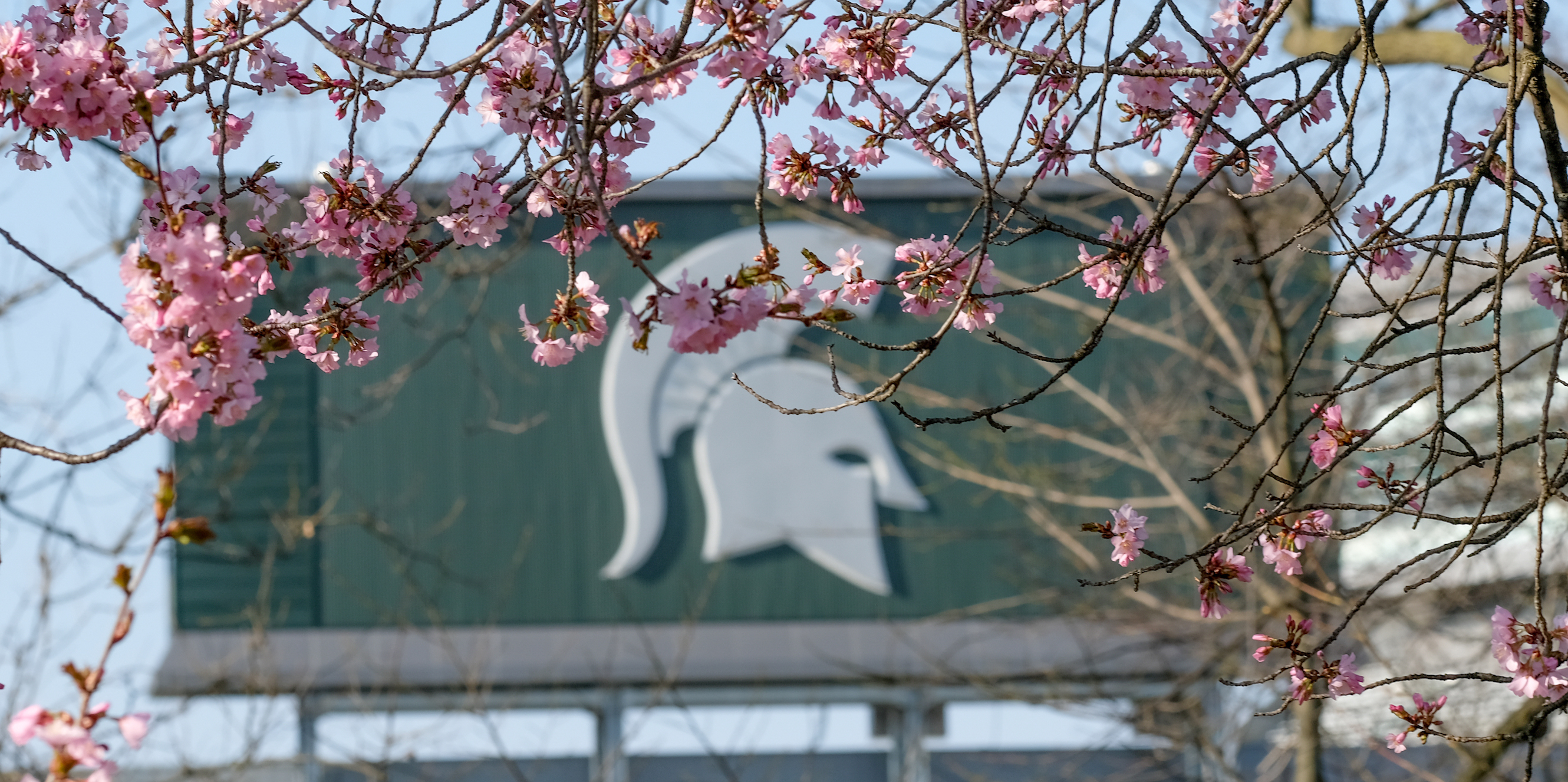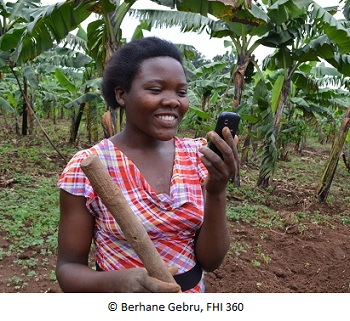Browse
Agri Food Systems
Farm credit giving Omoro and Amuru women farmers a lifeline
OMORO – Dero-she capital, a local community-based organization (CBO) is helping more than 170 rural women in Amuru and Omoro districts to profitably engage in agriculture by extending farm credit to them.
Instead of cash, the organization gives farmers credit in form of services like ploughing and inputs or farm implements like seeds and hand hoes.
Innocent Piloya, the Chief Executive Officer (CEO) of Dero-she capital told theCooperator that most times, rural women have agribusiness ideas but lack support to implement them.
“What we do is lend them support like hire a tractor to plough land for them, give them seeds and hand hoes to engage in farming. We also help them look for market for the crops. We then recover the money after they have sold off their harvest,” Piloya said.
“Our organization does not give actual credit to the farmers because the money can end up being diverted elsewhere once received. Much as a farmer may want a hoe or seeds, they might have more urgent needs like transport or treatment so they could end up using the money for a different purpose,” she explained.
Piloya explained further that, before the farm credit is extended to the women, they are trained on good agronomic practices and business skills to help them transform from subsistence to commercial farming before they are given the farm credit.
Continue reading on The Cooperator News website
By:
Derek Tobias
Wednesday, Oct 13, 2021
AGRI-FOOD SYSTEMS

Leave a comment
2021 Africa Agriculture Status Report
AAP would like to highlight MSU Assistant Professor and Coordinator of the AAP/GYAN Youth Transformation Platform Kwame Yeboah’s recent collaboration with colleagues from @Making Cents International and the @Bureau of Integrated Rural Development at the Kwame Nkrumah University of Science and Technology, Ghana, to author Chapter 8 of the report: "Capturing the Synergies Between Youth Livelihoods and Resilient Agri-food Systems". During this meeting, Kwame Yeboah and AAP partners discussed many issues facing agri-food system development in Africa. Some of these topics included:
Building sustained and resilient agri-food systems in Africa.
The impacts of youth livelihoods in Africa that are intricately intertwined with the performance of the agri-food systems.
How to foster youth engagement.
Address policies that facilitate youth access to productive resources.
Harnessing youth potential for resilient agri-food systems.
AAP recognizes the significance of the Africa Agricultural Status Report and continues to share our support for Assistant Professor Kwame Yeboah’s work on these vital topics.
By:
Raquel Acosta
Thursday, Sep 23, 2021
AGRI-FOOD SYSTEMS

Leave a comment
East and Southern Africa Fertilizer Financing Forum
The Africa Fertilizer Financing Mechanism (AFFM), in collaboration with the African Fertilizer and Agribusiness Partnership (AFAP) and AFRIQOM, will be hosting the first virtual edition of the East and Southern Africa Fertilizer Financing Forum on Thursday, 28 October 2021.
The event has been themed “Strengthening Regional Collaboration to Finance Fertilizer in the Agribusiness Value Chain”, and will facilitate the identification of opportunities for building and fostering partnerships with sectorial stakeholders in order to enhance access to finance and agricultural productivity in East and Southern Africa.
The East and Southern Africa Fertilizer Financing Forum will bring together regional member countries, regional and international development and commercial financial institutions, farmers, private sector, and non-governmental organizations.
The goal will be for participants to deliberate on potential solutions to existing bottlenecks to fertilizer financing. Delegates will also discuss ways to scale up funding in the region by leveraging the African Continental Free Trade Area (AfCFTA) initiative and other existing success stories.
Click here to register for the event
By:
Derek Tobias
Thursday, Sep 9, 2021
AGRI-FOOD SYSTEMS

Leave a comment
[RUFORUM Press Release] Seventh African Higher Education Week and RUFORUM Triennial Conference
Kampala 17 August 2021: The Regional Universities Forum for Capacity Building in Agriculture (RUFORUM) is pleased to announce the Seventh African Higher Education Week and RUFORUM Triennial Conference that will be hosted by the Government of the Republic of Benin in partnership with the University of Abomey Calavi, University of Parakou and the National University of Agriculture, from the 06th – 10th December, 2021 at Palais des Congres de Cotonou, Benin.
The Seventh African Higher Education Week and RUFORUM Triennial Conference will run under the theme “Operationalising Higher Education for Innovation, Industrialisation, Inclusion and Sustainable Economic Development in Africa: A Call for Action”
The conference will bring together participants from across Africa and the world to discuss how African universities are working toward improving their mandates of training, research and outreach, to produce innovations and entrepreneurial youth that meet the demands in the global competitive market. The participants will be drawn from Universities, Civil Society Organizations-CSOs, National and International Research Organizations, Development Partners, Governments, Continental and Regional Organizations, African Union Commission, Food and Agriculture Organization (FAO), Non-Governmental Organizations, the Private sector, farmers & farmer representatives, emerging & early career researchers, and young entrepreneurs from especially Benin and other West African countries. Universities, private sector actors and young entrepreneurs will have the opportunity to showcase their innovations, products and services. Due to the restrictions and risks associated with the COVID-19, African Higher Education Week and RUFORUM Triennial Conference is being organized using a blended approach, which will include both face-to-face and virtual meetings.
RUFORUM will recognise farmers that have made significant contribution to agricultural transformation in Benin as a way of supporting national advancement and transformation of agriculture. RUFORUM shall also recognise scientists and other actors that have made significant contribution and supported the advancement of excellence in research and higher education for the development of Africa. Young Innovators and Entrepreneurs from Benin will be recognised to promote the contribution of the youth to the economic development of Africa and to provide youth with the forum to demonstrate their innovations.
The Conference will be preceded by several virtual side events including: Scientific Data Management training for Post-Graduate Students Using R Programming Language, Evaluating the Impact of Entrepreneurship in Agribusiness Training, Social media training for students, Interdisciplinary Training for Early Career Scientists & doctoral students, and a business & entrepreneurship training for Young Innovators and entrepreneurs.
This year, because of the COVID-19 restrictions and risks associated with travel during this period, it will not be possible for all delegates to travel to Benin to participate. Therefore, some delegates will be requested to participate virtually through an online platform. We have therefore designed the attendance Questionnaire for RUFORUM Triennial Conference 2021 to enable the organizers know your preference in terms of traveling to Benin or attending the event face to face or virtually. We will also be happy to get essential information about you to enable effective planning.
This questionnaire is expected to take not more than 7 minutes of your time.
Learn more: https://ruforum.wordpress.com/2021/08/19/press-release-seventh-african-higher-education-week-and-ruforum-triennial-conference/?utm_source=RUFORUM+Mailing+List&utm_campaign=d18db56afe-RUFORUM+Weekly+-+Vol.3+No.25_COPY_01&utm_medium=email&utm_term=0_1fcfbb8a0b-d18db56afe-346973753&ct=t()&goal=0_1fcfbb8a0b-d18db56afe-346973753&mc_cid=d18db56afe&mc_eid=d95cf18a8d
By:
Madeleine Futter
Thursday, Aug 26, 2021
AGRI-FOOD SYSTEMS
+2

No Preview Available
Leave a comment
Young Ugandan entrepreneurs get hands-on experience with digital tools
Seven young entrepreneurs belonging to four teams from Uganda participated in a hands-on learning course to familiarise themselves with the solar-powered smart projector kit that they had won through the Access Agriculture Young Entrepreneur Challenge Fund initiative. The smart projector contains the entire library of Access Agriculture farmer-training videos in local and international languages and can be easily updated as new videos become available.
The winners of the Challenge Fund, known as Entrepreneurs for Rural Access (ERAs), are part of a network of innovative young people who design sustainable business models based on using the smart projector in rural areas to bring about a positive change in the lives of farmers, especially women and youth, in their communities through promoting sound agroecological practices.
The course was held at Gudie Leisure Farm, Wakiso district in Uganda as part of the Knowledge Centre for Organic Agriculture in Africa (KCOA) project funded by GIZ. It was facilitated by Access Agriculture ERA Entrepreneur coaches based in Uganda, in association with a local partner, The Farmers Media, and colleagues from KCOA project and the Participatory Ecological Land Use Management (PELUM) network in Uganda.
Simon Negro Adriko, who has been an ERA in Uganda since 2019, was invited to share his entrepreneurship experiences with the newly recruited ERAs. One of the ERAs from AgroMush team who is just completing his studies in Algeria, Azaria Kamusiime, participated virtually in all the sessions.
The training consisted of presentations, classroom and practical field sessions, including:
Group presentations of assignments given by the ERA coach before the training relating to key topics of the sessions
Demonstration of COVID-19 prevention guidelines that ERAs should follow during the training and in their enterprise-related activities
Hands-on experience with the smart projector
Data collection tools to monitor and track performance
Practical field tasks which involved all the elements that they learnt in the classroom – from youth mobilisation to screening of videos using the smart projector and data collection
Session on basic business skills and development of work plans
Continue to accessagriculture.org's website for more information!
By:
Derek Tobias
Monday, Aug 16, 2021
AGRI-FOOD SYSTEMS

Leave a comment
MSU ranks globally for impact on SDGs
Michigan State University has been recognized international for progress in the United Nations’ Sustainable Development Goals (SDGs). Most significantly, MSU was ranked #1 nationally and #4 internationally in the key goal of “Zero Hunger”. The Times Higher Education (THE) Impact Rankings are determined through submitted documents and activities by universities which are relevant to SDG indicators.
Additionally, MSU was placed #3 for “Partnership for the Goals”. This demonstrates the work of the MSU International Studies and Programs which utilize international connections to push forward SDGs in curriculum and research.
AAP is proud of its work to bring together member institutions and support international work. Specifically, our recent Partnerships for Innovative Research in Africa (PIRA) grants ensure multi-institutional collaboration on projects. PIRA is a tiered funding opportunity designed to cultivate and support transnational research partnerships which will directly impact lives within Africa and beyond.
AAP has also recently held two of our Public Dialogue Sessions which have utilized global partnerships to better communicate ongoing global challenges within vaccine distribution and soil health. Our latest dialogue session, “The Future of Farming to Meet Sustainable Development Goals in Africa: Reflections on Soil Health and Policy”, directly addressed MSU’s dedication to the progress of SDGs.
To read more about MSU’s impact: https://msutoday.msu.edu/news/2021/times-higher-ed-impact
To learn about THE ranking: https://www.timeshighereducation.com/impactrankings#!/page/0/length/25/sort_by/rank/sort_order/asc/cols/stats
By:
Madeleine Futter
Monday, Aug 16, 2021
AGRI-FOOD SYSTEMS
+1

No Preview Available
Leave a comment
YIELD Documentary
Young Innovators in Entrepreneurship and Development (YIELD) published a documentary which demonstrates their success in providing youth employment and entrepreneurship opportunities! YIELD calls for agri-preneurship in order to promote employment, value addition, and higher productivity in Africa.
AAP first provided a seed grant to YIELD in 2017 and continues to support their work. YIELD aims to improve access and maximize opportunities for young entrepreneurs in agri-food systems with international partners MSU Global Youth Advancement Network, Africa Center for Economic Transformation in Ghana, and Sokoine University of Agriculture.
To check out their most recent documentary:
https://youtu.be/YxAtO09afMo
To explore resources YIELD has given for young agri-preneurs: https://globalyouth.isp.msu.edu/programs-projects/yield/yield-shop-webinar-series/
By:
Madeleine Futter
Monday, Aug 16, 2021
AGRI-FOOD SYSTEMS
+1
Leave a comment
Professional Fellow Program Finalizes Participant Projects
The AAP is pleased to conclude another successful cohort from the US Department of State Professional Fellows program. With help from our partners at Kyambogo University in Uganda, the University of Nairobi in Kenya, and Sokoine University of Agriculture in Tanzania, we were able to identify and support the 12 East African fellows.
This year provided unique challenges due to COVID-19 travel restrictions. We celebrate the challenges and successful of the fellows and continue to support their upcoming projects. To hear from the fellows, coordinators, and program manager about the fourth cohort, please check out the link below.
https://aap.isp.msu.edu/news_article/22867
By:
Madeleine Futter
Monday, Aug 16, 2021
AGRI-FOOD SYSTEMS
+1
No Preview Available
Leave a comment
Congratulations to Professional Fellows
Congratulations to our Fellows for their project presentations at our Dissemination Workshop this morning! This is AAP’s fourth cohort from the US Department of State and Bureau of Education and Cultural Affairs’ (ECA) Professional Fellows Program (PFP). MSU participates in PFP in partnership with Kyambogo University, University of Nairobi, and Sokoine University of Agriculture.
At our workshop, each of our 12 East African Fellows virtually presented their projects to an international audience. Projects are held within an array of agribusinesses such as coffee, poultry, and honey production. Additionally, we thank Dr. Rob Glew, Associate Dean for Academic Programs at MSU International Studies and Programs, for opening remarks and closing remarks from Dr. Wynne Wright, Associate Professor at MSU Department of Community Sustainability and Department of Sociology.
We acknowledge our team for providing significant support for the Fellows and program. Both MSU and outside resources were essential to conducting a successful PFP, while being completely virtual. We also thank our mentors who guided each Fellow throughout the program and whose efforts are invaluable.
For those who could not attend, a recording will be posted on our website soon! Keep in touch with AAP in the next few weeks for more information on PFP and Fellows!
By:
Madeleine Futter
Monday, Aug 16, 2021
AGRI-FOOD SYSTEMS
Leave a comment
Collaboration and Connection with Malawian Policy Institutue
As AAP Senior Advisor, MSU faculty and lead PI at the MwAPATA Institute, Dr. Thomas Jayne states “local institutes working on the ground can produce insights that are valuable to international researchers. There are important benefits for MSU to be engaged in these processes.”
Highlighting this ongoing collaboration between MSU and African institutions, a recently published article by the MSU College of Agriculture & Natural Resources (CANR) focuses on the MwAPATA Institute. This agricultural policy research think tank provides well-needed Malawian contributions to policy outreach, research, coordination and capacity building. AAP celebrates our Senior Advisor, Prof. Thomas Jayne, and Africa Officer Director, Prof. Richard Mkandawire, for their significant efforts within the MwAPATA Institute!
To read more about the MwAPATA Institute and its AAP contributors follow this link: https://www.canr.msu.edu/news/msu-economists-develop-new-agricultural-policy-research-institute-in-malawi?sc_camp=C5792E5D342B45C688982386A82A7829&utm_source=msudaily-email&utm_medium=email&utm_campaign=standard-promo&utm_content=text2
More information MwAPATA’s website can be found here: https://www.mwapata.mw/about.
By:
Madeleine Futter
Monday, Aug 16, 2021
AGRI-FOOD SYSTEMS
No Preview Available
Leave a comment
9 PhD Scholarships Available with Animal Health Innovation Lab
The Animal Health Innovation Lab in partnership with the University of Nairobi is offering 9 PhD scholarships. The fully funded positions, offered by USAID, will develop research and lab-based solutions to the East Coast Fever. In Kenya and East Africa, this tick-borne disease of cattle has created constraints to human nutrition and economic welfare. The multi-institutional and multi-disciplinary environment offers a unique opportunity for those seeking a PhD in a main research project at the Animal Health Innovation Lab.
The application deadline is Feb. 10, 2021 at 23:59pm. Review the link and photo to apply!
https://uonbi.ac.ke/news/feed-future-animal-health-innovation-lab-phd-scholarships
By:
Madeleine Futter
Monday, Aug 16, 2021
AGRI-FOOD SYSTEMS
+2

Leave a comment
Making Food systems Equitable: An African Dialogue on Gender and Food Systems
In countries where women are most marginalized, discriminated under the law and where gendered norms prevent women from owning property and resources, people are also the hungriest. This is because gender equality and food systems are intertwined. However, too often, we only focus on the roles that women play in production, processing, trading of food and in making decisions about consumption and purchase of food at household level. And while this is important, we must also focus on whether the food system as organized is just and equitable and whether it promotes the empowerment and livelihoods and health of women and girls. Stark gender inequalities are both a cause and an outcome of unsustainable food systems, unjust food access, consumption and production. Tackling gender injustice and truly empowering women is not only a fundamental prerequisite for food systems transformation but also a goal.
This dialogue is one in a series of regional dialogues to discuss how we can achieve the triple goal of gender equality, sustainable and healthy food systems. It will bring together scientists, farmers and farmer organizations, policy makers, consumers, private sector and others to discuss and share solutions on guaranteeing land rights for women, rural women’s economic empowerment, women’s voice and decision making in food systems, bridging the gender technology gap and more.
Key outcomes of the dialogue include: (i) a set of solutions and commitments for gender equality in food systems (ii) an African position on what commitments are needed to achieve gender equality in food systems for the UN Food Systems Summit (iii) a community of practice to advance commitments on gender equality in food systems.
To take part in the dialogue, please visit the Summit Dialogues website
By:
Derek Tobias
Monday, Aug 16, 2021
AGRI-FOOD SYSTEMS

No Preview Available

Leave a comment